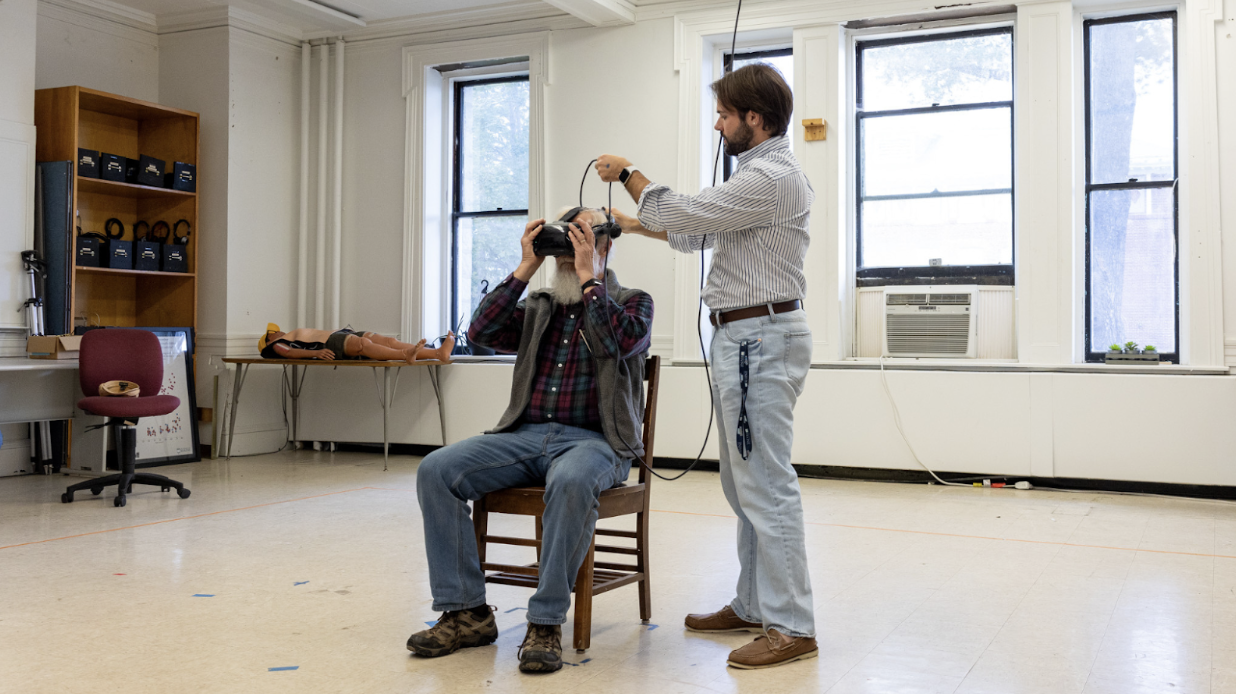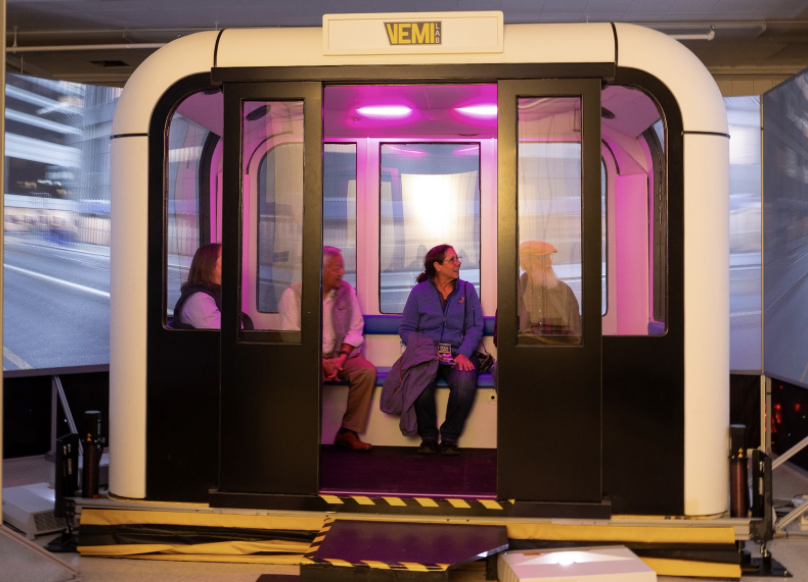
Imagine That! Tours & The UMaine VEMI Lab: Exploring Human-Centered Evolution of Virtual Environments
The world of virtual environments is in a perpetual state of evolution, endlessly pushing the boundaries of technology and its interface with human interaction. The University of Maine’s (UMaine) VEMI Lab, led by co-founder and Director Dr. Richard Corey, alongside support of over 10 student employees including Justin Brown, Research Manager and graduate student, stands at the forefront of human-centered adaptive technology. As a part of the Office of the Vice President and Dean of the Graduate School’s Imagine That! Tours event, hosted on October 13, the VEMI Lab provided more than 60 visitors with an opportunity to engage in hands-on experiences of the lab’s groundbreaking work.
The VEMI lab dedicates itself to exploring the possibilities of virtual environments, with a central focus on humans and their interactions with technology. While the lab initially focused on developing virtual environments, it now leverages these environments as a tool for various research endeavors. One notable project involves an Autonomous Vehicle simulator, which allows researchers to examine how humans interact with autonomous vehicles, highlighting the relationship between the vehicles and human trust.
Brown highlights, “The autonomous vehicle simulator is essential for research in understanding how humans engage with brand-new or unfamiliar technologies.” Using a motion platform and 360-degree virtual reality cityscape projection, the VEMI Lab has created an immersive environment that replicates the challenges and experience of a fully autonomous vehicle.

Visitors may explore virtual reality demonstrations created by student employees of the lab, providing them with educational and engaging real-life experiences. Brown recalls a specific memory from the Imagine That! Tours event when a group of elementary school students displayed their interest in virtual reality, a technology they were first experiencing. “It’s truly exciting witnessing the enthusiasm of young audiences towards virtual reality,” Brown remarked. The elementary school students expressed an interest in learning how to design virtual worlds, to which Brown explained that it is something they can do– An overall unique opportunity provided by the VEMI lab for anyone interested to gain hands-on experience.
Allowing any individual who is interested in the lab’s research to engage with the lab correlates with the fundamental principles that the lab is built upon– Humans are at the center of everything, as the lab represents a “people first” philosophy. Whether it be students engaging in virtual reality landscape design, visitors participating in the lab’s numerous demonstrations, or a plethora of other engagement opportunities, the lab itself embodies a human-centered nature with technology and research.
Beyond human inclusion and engagement, the technologies created by the lab and its researchers explore the needs of all types of individuals with a combined approach of accessibility and technology. Adapting technology to harness multisensory information allows for the technology developed within the lab to address the needs of those who cannot rely on all of their senses, such as those with visual impairments.
Further, the specific principles of accessible design guide the lab’s approach to research. “It is not just about developing technology for a specific group; it is about creating multi-sensory solutions accessible for a wide range of individuals,” Brown explained. Their work extends to non-visual information, where researchers explore how people can access visual information without relying on their vision. Inclusivity-driven research has great potential to revolutionize how people with visual impairments or other disabilities interact with technology.
The VEMI Lab is dedicated to driving change and inspiring future generations of thinkers and innovators. Their work demonstrates the power of immersive experiences and the importance of sharing the wonders of virtual environments with the general public. As technology evolves, labs like VEMI ensure that the resulting changes are groundbreaking and beneficial to an accessible audience.
Contact: research@maine.edu
Written by Karalyn Kutzer
